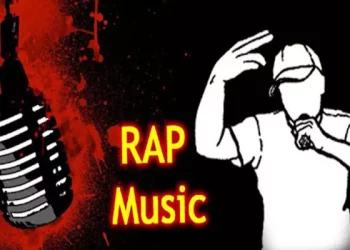Country music has a rich and diverse history, often reflecting the culture, values, and struggles of its time. However, not all songs have been welcomed with open arms. Some have faced bans due to their controversial themes, explicit content, or perceived offensive nature. One notable example of a country song that has been banned is “Accidental Racist” by Brad Paisley featuring LL Cool J. This article will explore the reasons behind the ban, the song’s themes, its reception, and the broader implications for country music.
Background of “Accidental Racist”
Released in 2013, “Accidental Racist” sparked immediate controversy upon its debut. The song addresses racial tensions in America, featuring a dialogue between a white man and a black man. Brad Paisley, who wrote and performed the song, aimed to explore the complexities of race relations and the misunderstandings that often arise between different cultures.
The song’s central premise is the idea of unintentional racism. It attempts to discuss how people from different backgrounds can misunderstand each other. However, this approach was met with significant backlash. Critics argued that the song oversimplified complex issues and failed to adequately address the historical context of racism in America.
Reasons for The Ban
Offensive Lyrics
One of the primary reasons for the ban of “Accidental Racist” was its controversial lyrics. Lines that attempted to bridge racial divides were perceived by many as tone-deaf and lacking sensitivity. For example, the white character in the song expresses frustration over being judged for wearing a Confederate flag on his shirt. This reference was particularly problematic for listeners who felt that the flag symbolizes a history of oppression and racism.
Many critics pointed out that using the Confederate flag as a talking point in a song about race relations trivialized the deep-rooted issues associated with it. The lyrics seemed to suggest that the character’s personal experiences could overshadow the larger societal implications of such symbols.
Misinterpretation of Intent
While Paisley’s intent may have been to foster understanding, many listeners interpreted the song differently. Critics argued that the song came off as self-serving, allowing the white character to sidestep responsibility for the implications of his actions. The notion that racism can be “accidental” was seen as dismissive of the lived experiences of those who face systemic discrimination.
In discussions around race, it is crucial to acknowledge that historical and structural inequalities do not allow for the luxury of accidental racism. Critics believed that the song’s message inadvertently reinforced harmful stereotypes rather than providing a constructive dialogue.
SEE ALSO: Why Is Keith Urban So Famous?
Public Reaction And Backlash
Upon its release, “Accidental Racist” received mixed reviews from the public and critics alike. While some listeners appreciated Paisley’s attempt to tackle difficult issues, many others were vocal about their disapproval. The backlash was swift, with numerous media outlets and social media platforms amplifying the conversation.
Critique from Music Critics
Music critics were divided. Some praised the song for its boldness, viewing it as an essential commentary on race relations. Others, however, deemed it a failure. They highlighted the lack of nuance in the lyrics and the overall execution. Notable publications criticized the song for its reliance on clichés and its failure to engage with the depth of racial issues in America.
Social Media Response
The song quickly became a trending topic on social media. Many users took to platforms like Twitter and Facebook to express their outrage. Hashtags condemning the song gained traction, and discussions about its themes reached audiences beyond the country music fanbase. This online discourse was instrumental in shaping public opinion and contributed to the song’s eventual ban from certain radio stations and platforms.
Implications for Country Music
The banning of “Accidental Racist” raised broader questions about the state of country music and its role in discussing social issues. Country music has a history of addressing controversial topics, but the reception of this song highlighted the challenges artists face when tackling sensitive subjects.
The Challenge of Addressing Race
The backlash against “Accidental Racist” serves as a cautionary tale for country artists. It illustrates the delicate balance between personal expression and social responsibility. Country music, often seen as a reflection of rural America, has traditionally shied away from discussions about race and diversity. This song’s controversy emphasizes the need for artists to approach these topics with care, ensuring they fully understand the historical and social contexts involved.
Conclusion
“Accidental Racist” by Brad Paisley featuring LL Cool J stands as a significant example of a banned country song that sparked intense debate about race relations in America. Its controversial lyrics, misinterpretation of intent, and public backlash highlight the challenges of addressing sensitive topics within the genre.
The song’s ban serves as a reminder of the importance of understanding the weight of words and symbols in music. As country music continues to evolve, it must navigate the complexities of social issues with care, aiming for a dialogue that fosters understanding rather than division. While some may view the ban as a limitation, it can also be seen as an opportunity for growth and reflection within the genre.
Related topics:



























